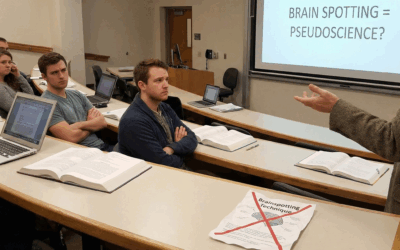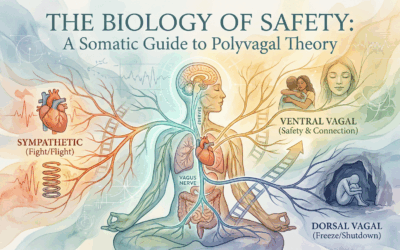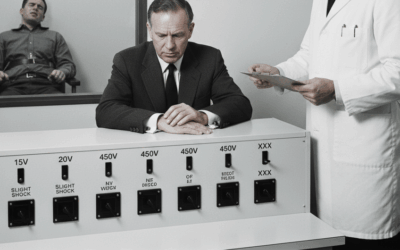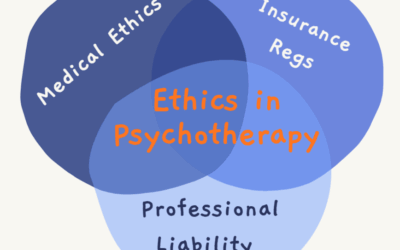An Interview with Dr. Madeline Eckenrode
The U.S. healthcare system is broken in many ways, leaving millions of Americans un- or under-insured and unable to access the care they need. This is especially true in states like Alabama that have not expanded Medicaid under the Affordable Care Act. In an eye-opening interview on the Taproot Therapy Collective podcast, hosts Joel Blackstock and Haley Beech speak with Dr. Madeline Eckenrode, a primary care physician at the University of Alabama at Birmingham (UAB), about the challenges patients and doctors face navigating a dysfunctional healthcare bureaucracy.
The Impact of Being Uninsured
Dr. Eckenrode, who recently penned an impactful op-ed on the importance of Medicaid expansion, sees the devastating effects of lack of insurance every day in her practice. She treats many young adults with complex chronic conditions who lose Medicaid coverage at age 19 if their parents don’t have a qualifying private plan. Without the safety net of Medicaid to cover preventive care and medications, their health drastically declines – until a crisis lands them disabled and back on Medicaid or Medicare. It’s a vicious, costly cycle that could be mitigated by expanding coverage.
“I just see it so clearly when people are able to get on reliable insurance and get that primary care and get their chronic conditions treated like it’s an intervention that is so impactful,” says Dr. Eckenrode. “It’s not perfect, but it’s so much better than nothing.”
The Flaws of Profit-Driven Healthcare
A major focus of the discussion is how profit-driven private insurance companies make it exceedingly difficult for doctors to deliver appropriate care. Dr. Eckenrode describes regularly spending hours on the phone fighting to get basic generic medications covered and crying with insurance reps begging them to approve life-saving treatments.
Patients need a referral and prior authorization for services as basic as physical therapy after an injury. The insurers’ goal seems to be to wear down doctors and patients with red tape until they give up. In contrast, Dr. Eckenrode notes that in her experience, Medicaid tends to have solid prescription drug coverage without requiring onerous prior authorizations for long-established medications.
The Economic Case for Medicaid Expansion
Expanding Medicaid is both economically pragmatic and morally right, as ample data from other states shows it improves health outcomes while reducing overall costs. Without insurance, people end up in crisis, utilizing high-cost emergency services. Paying for prevention up front is much more cost-effective than paying for organ transplants and dialysis down the line when chronic diseases spiral out of control.
Dr. Eckenrode argues that working people in jobs like food service deserve access to Medicaid so they can stay healthy and keep contributing to society and the economy. Her brother is a prime example of someone whose life was saved by accessing recovery services through Medicaid and is now thriving.
“It’s like, why don’t we want everyone to have that safety net of insurance coverage when they need it to help them stay healthy, get healthy, and then hopefully one day, get jobs that have employer-sponsored healthcare,” she notes. “But not everyone can do that. A lot of people can as long as they have a little bit of help through vulnerable times.”
The Politics of Suffering
The problem, as the group discusses, is that Alabama politicians seem more interested in scoring points with divisive national issues than actually improving life for their constituents. There are some hopeful signs though, like the state legislature recently expanding Medicaid coverage for new mothers to 12 months postpartum and making it easier for pregnant women to enroll. Small victories matter in the long fight for reproductive justice and health equity.
The Power of Grassroots Advocacy
The key takeaway is that healthcare providers and regular citizens need to speak up and get engaged at the local and state level to effect change. Supporting organizations like Alabama Arise that advocate for expanding access to care is one powerful way to make a difference.
We can find common ground in reducing the grocery tax and other regressive policies that hurt struggling families. Change is possible if we organize around issues close to home that matter in people’s daily lives. As Dr. Eckenrode notes, calling state legislators about key bills and making your voice heard does lead to progress, even if it feels incremental.
“I would just encourage people to not be hopeless and to get engaged with more local or state-based organizations,” she says. “Just learning about bills that are in the statehouse, calling your legislators… it feels really good to be civically active and you can turn the needle.”
Conclusion
This interview is a bracing wake-up call about the harsh realities faced by un- and under-insured Alabamians and the providers striving to care for them despite a system stacked against them. Dr. Eckenrode makes an ironclad case that expanding Medicaid is the fiscally smart and morally right path forward.
For those moved by her message, the next step is clear: get informed, get engaged, and relentlessly advocate for change. Everyone deserves access to affordable, quality healthcare. In the richest country on earth, settling for anything less is unconscionable.
:
Resources and Organizations Mentioned in Dr. Eckenrode Interview
Healthcare Organizations & Programs
UAB (University of Alabama at Birmingham)
- UAB Medicine
- Where Dr. Eckenrode practices and did her residency
- Home of the STEP Clinic for young adults with complex medical conditions
The STEP Clinic at UAB
- Specializes in treating young adults with complex medical conditions from childhood
- Treats conditions like cerebral palsy, spina bifida, organ transplants, lupus, etc.
Equal Access Birmingham
- Student-run free health clinic affiliated with UAB
- Provides care for uninsured patients with conditions like high blood pressure and diabetes
- Cannot provide cancer screening or comprehensive services
PATH Clinic
- UAB clinic for uninsured patients with poorly controlled diabetes
- Provides free medications
REACT (Resource for Addiction and Community Treatment)
- UAB assertive community treatment team
- Works with severe cases of psychotic mental illness
Cooper Green
- Healthcare facility funded by Jefferson County taxpayers
- Provides services to uninsured individuals in Jefferson County
Advocacy Organizations
Alabama Arise
- Organization that does advocacy around issues affecting Alabamians, including Medicaid expansion
- Encourages Dr. Eckenrode to write her article about young adults losing Medicaid coverage
- Provides information about legislation and opportunities for civic engagement
- Helps people know when to lobby, who to contact, and when to show up at the state house
Alabama Appleseed
- Advocacy organization that works on criminal justice reform and other issues in Alabama
- Successfully advocated to end the practice of jail managers pocketing leftover food budget money
- Works on issues with broad, cross-partisan appeal
Media and Publications
AL.com
- Website where Dr. Eckenrode published her article about Medicaid expansion
- Main news source for Alabama
ProPublica
- Published an article about United Healthcare using algorithms to determine if people were using “too much” mental health care and denying claims
Insurance Programs
Medicaid
- Government insurance for low-income and disabled people
- In Alabama, primarily serves disabled adults and children
- Pediatric Medicaid coverage ends at age 19 in Alabama
- Alabama has not expanded Medicaid unlike many other states
- Has “pretty good prescription drug coverage” according to Dr. Eckenrode
Medicare
- Government insurance primarily for people over 65
- Some people who are disabled can qualify before age 65
- People on dialysis automatically qualify for Medicare
Blue Cross Blue Shield
- Private insurance company mentioned throughout the interview
- Various plans (state employee, federal, employer-specific)
United Healthcare
- Private insurance company mentioned as “the enemy” by Dr. Eckenrode
- Largest employer of doctors in the country
- Uses algorithms to identify and deny claims for “excessive” mental health care usage in some states
Recent Policy Developments
Medicaid Postpartum Expansion
- Extended postpartum care through Medicaid from 6 weeks to 12 months
New Medicaid Enrollment for Pregnant Women
- Legislation to make it easier for pregnant women to enroll in Medicaid in first 60 days
Physical Therapy Direct Access Law
- Recent Alabama law allowing patients to see physical therapists without a doctor’s referral
- Some insurers still requiring referrals despite the law
States Mentioned as Medicaid Expansion Success Stories
- North Carolina
- Arkansas
- Pennsylvania (mentioned as having no tax on groceries or essential items)



























0 Comments